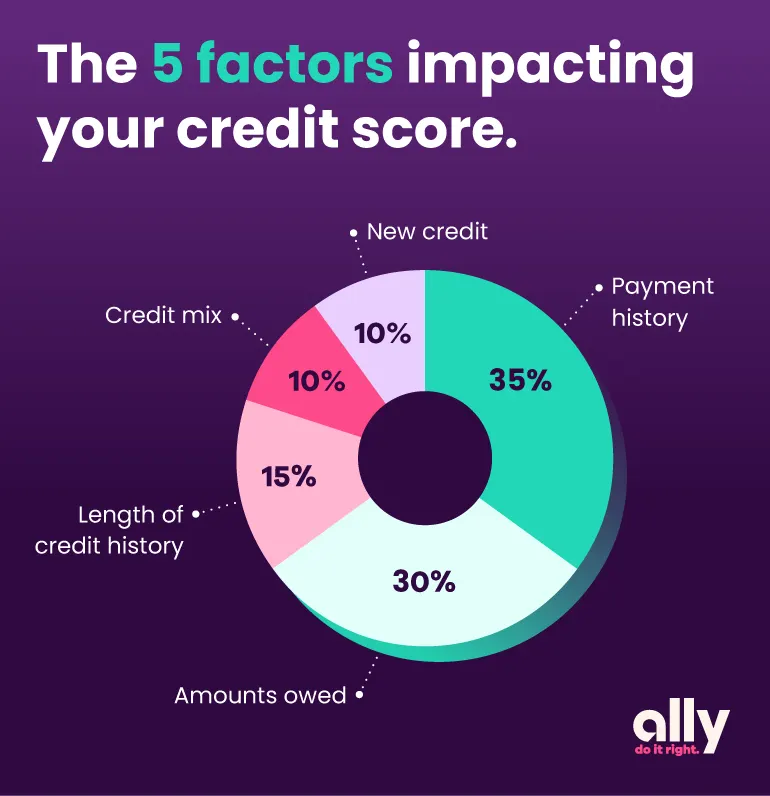Your credit score signals to lenders how well you handle and pay back debt. When it comes to big ticket purchases, this three-digit number could play a major role in determining how much you can borrow, how long you have to repay a loan and what your interest rate will be.
To maintain a good credit score, it’s important to understand what your credit report is, how your score is calculated and what goes into building your credit.
Read more: Saving up for a big purchase? Ally Bank’s savings buckets and boosters can help
What are credit reports?
A credit report is a detailed summary of your personal credit history — things like mortgage payments, student loans, car payments and credit card payments. Each report includes identifying information about you and a detailed list of your current and past financial obligations, including:
loan amounts
current balances
the date the accounts were opened
payment history
For these financial obligations to count toward your credit score, a creditor must report them to at least one credit bureau. Experian, Equifax and TransUnion are three of the most widely used credit bureaus that provide credit reports.
You can obtain a free copy of your credit report every 12 months from all three credit bureaus by visiting AnnualCreditReport.com, a site authorized by the federal government.
What is a credit score?
Credit scores help potential lenders determine whether they would consider lending to you. Your credit score is a numerical value based on the information on your credit report and measures your creditworthiness as a borrower. A higher credit score means you are more likely to pay back your loan on time and in full, making you safer to lend to.
Credit scores are calculated with credit scoring models that use various factors (such as your payment history) to predict the probability that you could default on a loan. For example, FICO rates your credit based on five factors:

What is a good credit score?
Different credit scoring models (like FICO or VantageScore) define good credit scores differently, but typically scores above 660-670 are considered good.
Example FICO Score ranges:
800-850 – Exceptional
740-799 – Very good
670-739 – Good
580-669 – Fair
300-579 – Poor (commonly called “bad credit”)
A higher credit score means you are more likely to pay back your loan on time and in full, making you safer to lend to.
How to build good credit
“Good,” “very good” and “exceptional” credit scores can help you gain access to more competitive annual percentage rates, or APRs, get approved for important loans (such as a mortgage) and pass screenings from potential lenders, landlords or employers. Follow these tips to build and maintain a good credit score:
Pay bills in full and on time: This may be the best way to improve credit score since payment history carries a lot of weight. On-time payments boost your score, while late payments and defaults can lower it. Paying in full also signals to creditors your creditworthiness — and it saves you money in the long run by avoiding accruing interest.
Maintain a low credit utilization rate: Credit utilization refers to how much of your available credit you typically use. Try to keep your utilization below 30% and avoid “maxing out” any revolving credit, such as credit cards.
Limit new credit applications: Be mindful of how many new credit accounts you open, especially while you are applying for a new loan, as too much new credit could negatively affect your score. As you open new credit card accounts, monitor your credit closely, and avoid opening additional credit accounts until your score has recovered from any previous changes.
Get a secured credit card: For those with no credit history or bad credit, secured credit cards can be a helpful tool to build credit without getting approved for traditional credit accounts or loans.
Build your financial future
Whether you plan to buy a home, finance a car or just want to maintain your overall financial health, monitoring and building your credit can help you on the path toward your financial goals.
Next in the series



